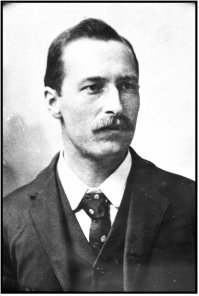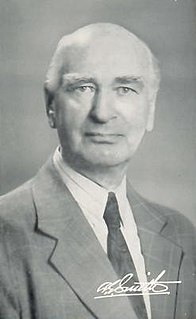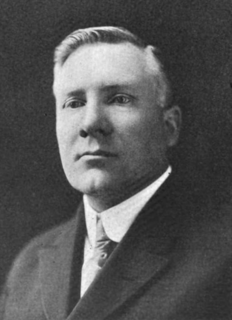There have been various groups in Canada that have nominated candidates under the label Labour Party or Independent Labour Party or other variations from the 1870s until the 1960s. These were usually local or provincial groups using the Labour Party or Independent Labour Party name, backed by local labour councils or individual trade unions. There was an attempt to create a national Canadian Labour Party in the late 1910s and in the 1920s, but these were only partly successful.

The first Socialist Party of Canada (SPC) existed from 1904 to 1925 led by E. T. Kingsley. It published the Western Clarion newspaper.
The Manitoba Labour Party (MLP) was a reformist, non-Marxist labour party in Manitoba, Canada. It was created in early May 1910 as a successor to the province's second Independent Labour Party (1906–08). Former Member of Parliament Arthur Puttee was a leading MLP organizer. The party fielded one candidate in the 1910 provincial election, and also ran candidates at the municipal level.
The Socialist Party of Manitoba (SPM) was a short-lived social democratic political party launched in 1902 in the Canadian province of Manitoba. The organisation advanced a moderate programme of social reform legislation. In 1904 the SPM became one of the constituent units founding the Socialist Party of Canada, an organisation which continued until 1925.
When the Social Democratic Party of Canada broke away from the Socialist Party of Canada in 1911, many Winnipeg SPC members joined the new organization. The new party's platform was written by three residents of the city, and it has been estimated that nearly 20% of the SDPC's total membership lived in Winnipeg during the early 1910s.
The Dominion Labour Party (DLP) was a reformist labour party, formed in Canada in 1918. The party enjoyed its greatest success in the province of Manitoba.
Frederick John "Fred" Dixon was a Manitoba politician, and was for several years the dominant figure in the province's mainstream labour and Henry George Single Tax Georgist movements. Also a proponent of proportional representation, he served as MLA in the Manitoba Legislaiture from 1914 to 1923.

The Communist Party of Canada (Manitoba) is the provincial wing of the Communist Party of Canada for the province of Manitoba. Founded in 1921, it was an illegal organization for several years and its meetings were conducted with great secrecy. Until 1924, the "Workers Party" functioned as its public, legal face. For a period in the 1920s, the party was associated with the Canadian Labour Party. After 1920 it attracted former members of radical and syndicalist groups such as the Industrial Workers of the World (IWW). Many of the new members were Jews, Finns or Ukrainians who supported the Russian Revolution.

Arthur W. Puttee was a British-Canadian printer and politician. Puttee was the first Labour Member of Parliament (MP) in the House of Commons of Canada, sitting as Winnipeg MP from 1900 to 1904.
Morris Abraham Gray was a politician in Manitoba, Canada. He served as a member of the provincial legislature from 1941 to 1966, and was a prominent figure in the province's social-democratic Cooperative Commonwealth Federation (CCF) during this period.
The 1922 Manitoba general election was held on July 18, 1922 to elect Members of the Legislative Assembly of the Province of Manitoba, Canada. The United Farmers of Manitoba won a narrow majority in the legislature.

Albert Edward Smith (1871–1947), known as A. E. Smith, was a Canadian religious leader and politician. A social gospeller, Smith was for many years a minister in the Canadian Methodist Church before starting his own "People's Church". He served in the Legislative Assembly of Manitoba from 1920 to 1922 as a Labour representative. In 1925, he became a member of the Communist Party of Canada.
George Armstrong was a politician and labour activist in Manitoba, Canada. He served in the Legislative Assembly of Manitoba from 1920 to 1922, and is notable as the only member of the Socialist Party of Canada ever to serve in that institution.

Thomas Herman Johnson was a politician in Manitoba, Canada. He served in the Legislative Assembly of Manitoba from 1907 to 1922, and was a prominent cabinet minister in the government of Tobias Norris. Johnson was a member of the Liberal Party.
Robert Boyd Russell was a labour organizer and politician in Manitoba, Canada. R.B. Russell, as he was known, was a prominent figure in the Winnipeg General Strike of 1919 and was later the leader of Winnipeg's One Big Union.
Frederick George Tipping was a labour organizer in Manitoba, Canada. He was involved in the Winnipeg General Strike of 1919, and subsequently ran for office as a candidate of the Labour Party.
The Manitoba Cooperative Commonwealth Federation existed from 1933 to 1961, and was the dominant socialist party in the province during its existence.
The Manitoba Liberal-Progressive Party ran fifty candidates in the 1953 provincial election. Thirty-two of these candidates were elected, giving the party a majority government in the legislature. Many Liberal-Progressive candidates have their own biography pages; information on others may be found here.
The Socialist Party of British Columbia (SPBC), later the Socialist Party of Canada , was a provincial political party in British Columbia, Canada, from 1901 to 1905. In 1903, the SPBC won seats in the Legislative Assembly of British Columbia.
William Arthur "Bill" Pritchard (1888-1981) was a pioneer Canadian socialist politician and publisher. Pritchard is best remembered as a principal defendant in a 1920 sedition prosecution of nine leaders of the 1919 Winnipeg General Strike. He served a prison term for seditious conspiracy. After his release he eventually was elected mayor of Burnaby, BC during the Great Depression.




